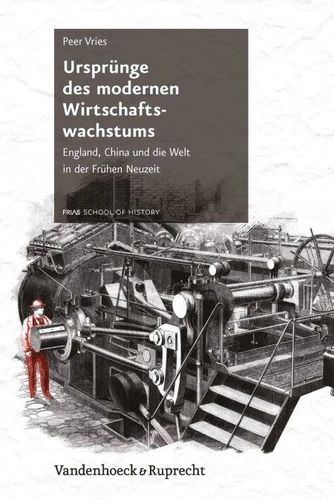Ursprünge des modernen Wirtschaftswachstums. England, China und die Welt in der Frühen Neuzeit
Par : ,Formats :
Disponible dans votre compte client Decitre ou Furet du Nord dès validation de votre commande. Le format PDF est :
- Compatible avec une lecture sur My Vivlio (smartphone, tablette, ordinateur)
- Compatible avec une lecture sur liseuses Vivlio
- Pour les liseuses autres que Vivlio, vous devez utiliser le logiciel Adobe Digital Edition. Non compatible avec la lecture sur les liseuses Kindle, Remarkable et Sony
 , qui est-ce ?
, qui est-ce ?Notre partenaire de plateforme de lecture numérique où vous retrouverez l'ensemble de vos ebooks gratuitement
Pour en savoir plus sur nos ebooks, consultez notre aide en ligne ici
- Nombre de pages541
- FormatPDF
- ISBN978-3-647-31047-3
- EAN9783647310473
- Date de parution23/10/2013
- Protection num.pas de protection
- Taille3 Mo
- Infos supplémentairespdf
- ÉditeurVandenhoeck & Ruprecht
Résumé
On the one hand the rich industrialized countries, on the other the poor developing and emerging nations. Beginning in the 18th century Europe experienced enormous economic development surpassing that of the rest of the world. What are the reasons? Chance, exploitation, inherent circumstances in Europe? The disparate relationship between the different parts of the world still exists - and continues to challenge historians to produce plausible explanations.
In this volume Peer Vries makes well-founded and masterful arguments concerning the reasons behind these developments and offers his own complex explanation.
In this volume Peer Vries makes well-founded and masterful arguments concerning the reasons behind these developments and offers his own complex explanation.
On the one hand the rich industrialized countries, on the other the poor developing and emerging nations. Beginning in the 18th century Europe experienced enormous economic development surpassing that of the rest of the world. What are the reasons? Chance, exploitation, inherent circumstances in Europe? The disparate relationship between the different parts of the world still exists - and continues to challenge historians to produce plausible explanations.
In this volume Peer Vries makes well-founded and masterful arguments concerning the reasons behind these developments and offers his own complex explanation.
In this volume Peer Vries makes well-founded and masterful arguments concerning the reasons behind these developments and offers his own complex explanation.



